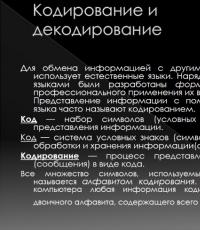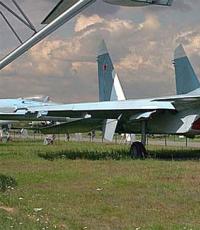Fair trade. What is World Fair Trade Day and when is it celebrated? World Fair Trade Day
World Fair Trade Day
Every year on the second Saturday of May, the day is celebrated when the whole world rethinks the main principles in a philosophical and practical way fair trade. Manufacturers and merchants from different countries hold thematic business meetings, exhibitions and conferences. In 2019, the holiday is celebrated on May 11.
The noble “mission” of the holiday is to promote the principles of fair trade and honest business in accordance with international regulations. The main topics of condemnation are child labor, slave bondage, inflated prices and the destruction of ecosystems. Since ancient times, trade has been associated with fraud and deception.
It just so happens that the very concept of fair trade has an irrational meaning. However, in 1940 the commercialization of fair chain goods began. The organization “10 thousand villages” began to supply goods self made to developing countries. The product was more of a symbol confirming the donation.
By the mid-1980s, a new social movement called fair trade emerged. All products became subject to mandatory certification and labeling. A general motto was coined: “Fair trade is not aid.” The Fairtrade marking is evidence that eco-friendly raw materials were used in the production of the product, there was no release of chemicals into the soil, working conditions complied with international standards and child labor was not involved.
Products with a “fair label” are often more expensive than their analogues, but many consumers consciously prefer this category of products. Labeling allows you to track the entire commodity chain, from the origin of the product, production, delivery, to the act of purchase.
Fair trade principles: creating conditions for small and unprofitable companies to enter the market, absolute business transparency and a simple participation algorithm, fair price according to location, which covers the built-in cost and development costs, equality of men and women in the status of movement participants, humane working conditions.
The main group of goods are export products from third world countries. The product register includes: bananas, coffee, tea, honey, oranges, cocoa, fruits, vegetables, spices, nuts, wine and more. Manufacturing companies that adhere to fair trade laws label their products with a single mark. Manufacturer consolidation advocates labor, ethical, social and environmental standards. Organizer of the movement - World organization fair trade.
... read more >World Fair Trade Day is celebrated every year on the second Saturday of the last month. This time the holiday falls on the eleventh of May.
The holiday, which is organized by the leadership of the World Fair Trade Organization, gives the opportunity to three hundred and fifty groups and organizations from seventy countries to declare that they take part only in fair trade.
Traditionally, on this day it is customary to organize various exhibitions, seminars and conferences, where manufacturing companies from all countries around the world are invited to participate. They are trying to convey to the population the importance of fair trade, which must comply with generally accepted global standards.
In addition, these activities are aimed at creating negative public relations to slave labor and drawing the attention of humanity to the environmental conditions of the production of goods.
Fair trade goods can include foods such as tea, coffee, cocoa, bananas, as well as handicrafts and clothing. The main thing is that they are made without the use of slave and child labor.
This is more of a global program that is needed in order to increase people's knowledge about migratory birds, their habitats and routes of movement.
At first the holiday was celebrated in May, but since last year another date was added - October. As a prerequisite for the creation of such a holiday, they took international convention on the protection of birds, which was approved more than a hundred years ago, although Russia joined it much later.
Various public events of the Day, among which the most famous are bird festivals, educational and educational programs, bird watching under the guidance of specialists, excursions - call for the protection of the habitats of migratory birds around the world. Each year they are dedicated to a specific topic.
Egyptian mythology, showing gods with elements of birds, the Nazca monuments found in Peru, prove the significant influence of migratory birds on ancient civilizations. And today there are organizations that depend on migratory birds for their livelihood.
Bird migration as a phenomenon is also a key indicator of biodiversity, ecosystem health, and climate change. Thanks to the activities of migrating birds, the balance of the ecosystem as a whole is maintained - for example, some plants are pollinated by migrating birds.
Russia will celebrate Astronomy Day on May 11
This holiday is also celebrated twice a year - in autumn and spring. Not only professionals of this scientific discipline, but also ordinary amateurs are accustomed to remembering it.
The holiday was established more than forty years ago in the United States of America. The leader of one of the astronomical associations decided that there was no need to force people to travel huge distances in order to visit famous observatories. It is better to install telescopes in places where they will be accessible to everyone.
Astronomy Day is organized and supported financially by fourteen organizations, among which the most influential are the Astronomical League, the Pacific Astronomical Society, the Royal Astronomical Society of Canada, the International Planetarium Union, and the American Astronomical Society.
During Astronomy Week and especially on Astronomy Day itself, thousands of astronomy clubs, science museums, observatories, planetariums in many countries hold many interesting events aimed at increasing public awareness about astronomy and our amazing universe.
These include public lectures by famous cosmonauts, teleconferences, joint projects, and mass displays of the starry sky. IN educational institutions They organize special classes on the basics of astronomy, and at exhibitions you can taste space food.
Post Views: 283
Among the events traditionally organized on this day are exhibitions, seminars, conferences, in which manufacturing companies from around the world take part, promoting the principles of fair trade, which must comply with international standards. In addition, these events are aimed at creating a negative public attitude towards slave labor and attracting people's attention to the environmental conditions of the production of goods.
Fair Trade is a social movement, designed to advocate for international standards and public policy regarding labeled and unlabeled products. The focus is on goods exported from developing to developed countries.
Fair trade goods can include foods such as tea, coffee, cocoa, bananas, as well as handicrafts and clothing. The main thing is that they are produced without the use of slave and child labor.
For example, the themes in different years were the words: Fair Trade + Ecology (calling on manufacturers to produce environmentally friendly and safe products), Trade for people: Fair Trade - your world (TRADE FOR PEOPLE - Fair Trade your world).
Detailed Description:
(date for 2018) World Fair Trade Day is celebrated annually on the second Saturday of May, and May is considered Fair Trade Month.
Led by the World Fair Trade Organization, the Day allows approximately 350 producer groups and fair trade organizations from 70 countries to commit to fair trade.
Among the events traditionally organized on this day are exhibitions, seminars, conferences, in which manufacturing companies from around the world take part, promoting the principles of fair trade, which must comply with international standards.
In addition, these events are aimed at creating a negative public attitude towards slave labor and attracting people's attention to the environmental conditions of the production of goods. The main thing is that they are produced without the use of slave and child labor
World Fair Trade Day is celebrated on May 11th. It is no secret that trade is not always conducted honestly: stores sometimes resort to various tricks to force the buyer to spend more. By learning about simple rules, you can avoid being scammed.
On Fair Trade Day, many seminars and business meetings are held to discuss trade-related problems and propose ways to solve them. 11 everyone can appreciate honesty retail outlets, paying attention to the behavior of sellers, as well as people organizing sales in large shopping malls.
In the modern world huge amount shops offer their goods, luring potential buyers colorful showcases, tempting promotions and bonuses. Before you go shopping at grocery stores, it is worth remembering that at the point of sale there are many tricks waiting for everyone to force them to buy more. Here are a few rules that will help you save money.
How not to be deceived when shopping

1. You need to go to grocery stores well-fed. Marketers know a lot about sales, so most retail outlets will have tempting scents waiting for customers. The crispy buns and the smell of fresh baked goods make you salivate involuntarily. At such moments, it is important to remember: this is a deception that forces you to buy too much. Fruits and vegetables that are sprayed with water to give them a more appetizing look look no less tempting.

2. Necessary goods at a fair price are not placed at eye level. Shelves with treasured products are located near the floor. Quality products are often hidden in the depths of refrigerators and refrigerated shelves. In the first rows are products that are nearing their expiration date.

3. At the checkout counters there are display cases with small items, which are a big problem not buying. Bright wrappers and candy wrappers attract the attention of not only adults, but also children, who literally force parents to buy useless products. Another “ambush” is located directly at the cashier: promotional items that are very difficult to ignore.

4. A great way to prevent yourself from being deceived is to make an accurate shopping list and a small amount. cash. Thanks to the treasured notes on a smartphone or on a traditional piece of paper, the likelihood of deception is reduced, even if during shopping the eye comes across a tempting offer of goods that are not needed at the moment.

5. Checking receipts is another way to protect yourself from fraud. At large quantities shopping, you may not be able to keep track of how the cashier punches not one, but several items of the purchased product at once. If you check that the grocery basket matches the items on the receipt, you can easily avoid dishonesty or forgetfulness of the cashier.

6. You need to check the change, as well as the payment amount if the purchase was paid by card. Often cashiers demand to pay again, complaining that the payment was not made. A notification on the phone will resolve the dispute and save you from hassle.

7. Inconsistency in price tags on goods is also often a trick. Not everyone will argue over a few rubles, so the trick works. If in doubt, you need to take a photo of the price tag or take it with you so that the hall employees do not have time to change them while watching the conflict flare up.

8. People often cheat in markets, so sellers hide scales, which often have additional weights. Every market should have check scales, and if in doubt, use them.
It is much easier to protect yourself from deception through observation and responsibility than to later deal with dishonest sellers.
We are waiting and do not forget to click and
The 2nd Saturday of May is the day when the whole world rethinks the main principles of fair trade in a philosophical and practical way. Manufacturers and merchants from different countries hold thematic business meetings, exhibitions and conferences. The noble “mission” of the holiday is to promote the principles of fair trade and honest business in accordance with international regulations. The main topics of condemnation are child labor, slave bondage, inflated prices and disruption of production ecosystems.
At the origins of the holiday
Since ancient times, trade has been associated with fraud and deception. It is no coincidence that the patron saint of merchants, Mercury, wore winged sandals to quickly hide in case of emergency. He was an ardent champion of swindlers and thieves. It just so happens that the very concept of fair trade has an irrational meaning.
However, in 1940, the beginning of the commercialization of goods from the “fair chain” was laid. The 10 Thousand Villages organization began supplying handmade goods (jute products, embroidery on textiles) to developing countries. The product was more of a symbol confirming the donation.
In the 60s, hippies were “ostracized” by powerful monopoly companies. They opposed hard work in factories and farms. The first store where ethical goods were presented appeared in Britain. The alternative trade store operated on the principle of “we help by selling.” On the counters were dolls, tom-toms, masks and other handicrafts. The shop gained popularity, and similar stores began to open in other European countries.
Fair Trade Movement
In the 1980s, a new social movement called fair trade emerged. All products became subject to mandatory certification and labeling. A common motto was coined: “Fair trade is not aid.” The Fairtrade label is evidence that environmentally friendly raw materials were used in the production of the product, no chemicals were released into the soil, working conditions complied with international standards, and child labor was not involved.
Products with a “fair label” are often more expensive than their analogues, but many consumers consciously prefer this category of products. Labeling allows you to track the entire commodity chain, from the origin of the product, production, delivery, to the act of purchase.
Fair Trade Principles:
creating conditions for small and unprofitable companies to enter the market;
absolute business transparency and simple participation algorithm;
fair price according to location, which covers the built-in cost and development costs;
equality of men and women in the status of movement participants;
humane working conditions.
The main group of goods are export products from third world countries. The register of products includes: bananas, coffee, tea, honey, oranges, cocoa, fruits, vegetables, spices, nuts, wine, etc. Manufacturing companies that adhere to fair trade laws label their products with a single sign.
Manufacturer consolidation advocates labor, ethical, social and environmental standards. The organizer of the movement is the World Fair Trade Organization.





